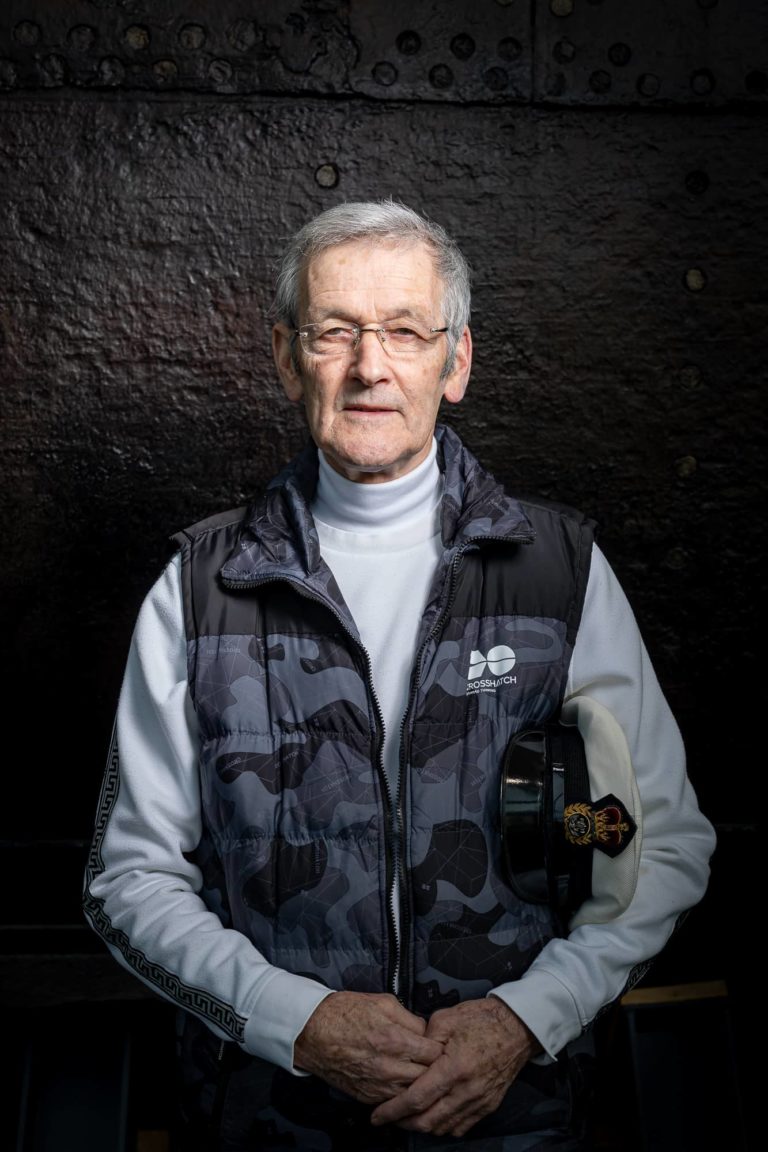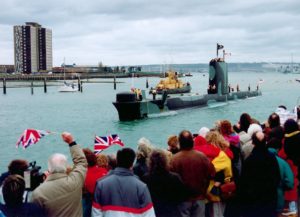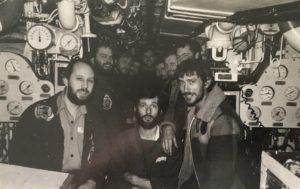Brian Wood – 11 months away at sea immediately after getting married
I was sent on a fortnight’s leave in 1973, July and August, and I got married in that fortnight and then sailed on the Onslaught.
Out to the Mediterranean. And then I got back 11 months later
We weren’t originally going to go off. We went out there Mediterranean specifically to do a couple of exercises and we knew this new Russian ship was coming out from the Black Sea, so we knew we were going to be chasing her around for a while, depending on what she did. We did catch her in anchor off a Bay in Crete where we had a good opportunity to sort of have a look at the underside of her and then we followed her over to Alexandria, followed her round for a bit, watching her sort of attempt to do flying off things. She was sort of a converted Cruiser into an Aircraft Carrier type thing. Didn’t quite work. Then we went back to Malta for a rest period. Sailed from Malta and as we were passing Gozo, the Cyprus incident blew up, and all the Navies around there ‘cos we had a couple of ships waiting to evacuate people or to help out, lots of other foreign ships, and it was a good opportunity at that stage ‘cos we were on special fit with fibre optic cameras and things, special Periscopes, to do that sort of work.
Simon: What because there are so many ships there you could get a good look at everything?
Instead of coming home we got sent round to watch what was going on in Cyprus ‘till it was all over so we were puddling around there.
Simon: Had she been told that you were delayed or was there some sort of comms back?
There was a little bit of comms but we couldn’t write or anything. I mean the last phone call was, “Oh we’re on our way home.” We sailed, “No you’re not.” Finished messing about there, went to Gibraltar, just to refuel and stock up ready for sailing for home. Couple of days there and we’ll be home in sort of 5 days. As we were going through the Bay of Biscay, a signal, one of the ‘S’ boats had broken down and she was doing a target boat for a couple of surface ships on an exercise that was going off in the south-west approaches. “You’ll have to go as target boat for the ‘S’ boat that’s broken down” so there we were trundling around for a couple of weeks. All finished, sailing up the Channel. We’re just passing Dartmouth, or just about to pass Dartmouth, another signal, “The ‘O’ boat is supposed to do a weeks run in taking Cadets, potential submarine Officers to sea for a week has broken down, you’ll have to nip in there.” Into Dartmouth, away we go, get that done out for a week, dump them off , just passing Portland, “Ah, the submarine is supposed to do SBS running has broken down, you’ll have to go into Portland and do …” and that was another 4 weeks doing Special Ops with the SBS doing exit and re-entry drills and canoe offloading. So, every time, “I’ll be home in a week, I’ll be home in a week.” Oh, dear me.
Simon: So, what’s the feeling onboard when you think you’re in touching distance of going home and then you’re diverted something like 4 or 5 times?
Oh, you’re down, but once you got back into ‘oh, we’re doing this’ you cracked on. That was it, it was a way of life. It happened to a lot of submarines. You know you’d have a programme set out for about 11 months but then you never really stuck to it. Not the conventional boats anyway. All the ‘S’s and the ‘T’s because they were … on a Missile submarine, you have a specific job. They’re not going to go running round doing all sorts of funny things. They go out and disappear for months on end and then come back, but on sort of the smaller, especially the conventional submarines, you were always … you never stuck to your programme, ever. There was always some incident somewhere where you had to go and divert from your original programme, put it that way. But it made more … it made life more exciting in a way because you never knew what you were going to do, never knew where you were going to end up.







